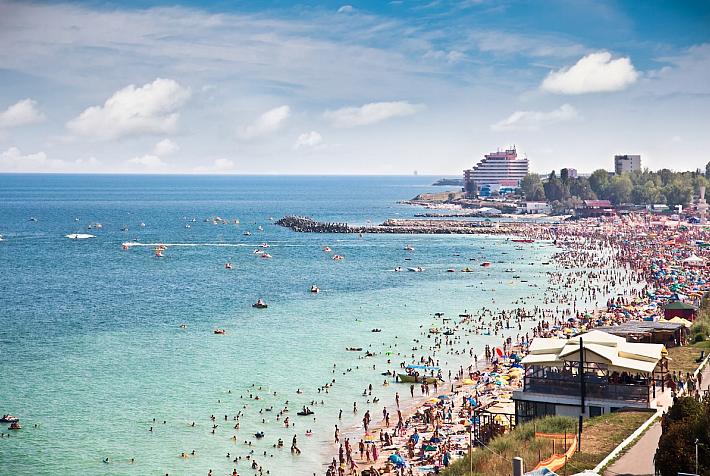Comment: Feeling lonely on the days of love and why I am a rarity in rural Romania

Guest writer Arabella McIntyre-Brown looks at the celebration of love – and the other side of the coin: loneliness in Romania, a family-oriented country.
In these days running up to Valentine’s Day and its Romanian version Dragobete and Martisor, we are fed images of romance and love, and the whole world seems wrapped in a rosy haze of togetherness. But what about those who don’t feel the love? Who feel disconnected, isolated, and invisible?
Loneliness feels so much worse on these days when you’re supposed to be happy – especially in Romania, where the culture is so family-orientated and open-hearted. The upcoming love-fests can be agonising for those who feel excluded from the loving circle.
Martisor is the traditional Romanian festival of tenderness, friendship and love, when the tiny tokens on twists of red and white silk are widely given as gestures of affection and appreciation. Even grumpy old hermits like me gather a few red-and-white trimmed tokens from kind neighbours and friends, and have our heartstrings tugged by the simple charms.
But Valentine’s Day, swiftly encroaching on Romanian life, is about ‘romance’ – and like Christmas, heavily commercialised. We are brainwashed into believing that if you don’t spend, you don’t care. And if you’re not in a couple, you’re nowhere and nothing.
On festive days, when the entire world except you seems to be having an utterly fabulous time, the loneliness can get overwhelming. I’m not talking only about those living alone, elderly, ill, or bereaved – loneliness can be just as keenly felt by those in a marriage, with busy lives, surrounded by people. Loneliness is not just for adults – it affects every age, from infancy onwards, and it’s not about how you look or how much you earn.
My neighbours here in the mountains were very concerned about me at first, living alone up here, no man to cling to, no children to cuddle. After five years, they now accept that I love my solitary way of life, and don’t get bored or feel lonely. They might not understand it, even think it’s a bit weird – but they can see that, for me, ‘a fi singura e bine’ (being alone is good). But it’s not common, seeking solitude. I’m unusual in Britain, and in rural Romania I’m a rarity.
Loneliness is not a feeling that grabs me very often; the rare times I feel lonely are amongst people, not here in the mountains where I feel so connected to all life around me. Crowded airports, railway stations, concert audiences – that’s where I feel the disconnection. Worse is the feeling of isolation among a happy group of friends or family; worse than that was lying next to my partner, unable to sleep, frozen by the wall of ice between us.
Loneliness is a feeling; it’s not a state such as being from Ghana, or gay, or green-eyed. These neutral facts describe the way you were born, and won’t change. How you feel about being the way you are may depend on your experiences, but you can change how you feel about them, even if you can’t change the facts.
You are in charge of your feelings, although changing them is not always easy, especially if it’s a feeling you’ve lived with for years.
The only long-term way to banish loneliness is found inside you. No-one else can cure your loneliness – finding love is a temporary solution, no matter what Hollywood or romantic fiction try to tell you. ‘Happy ever after’ is a fairy tale. (I’m not saying for a moment that there’s no such thing as true love – that profound connection that lasts a lifetime – but it’s quite rare.)
That sense of connection, which banishes loneliness, is a soul thing. It involves learning to see things differently, which usually takes practice, time and determination – like giving up smoking, getting fit, or changing any physical or mental habit, but with an added spiritual dimension. Worth doing, though.
For the bad days, when the loneliness threatens to overwhelm you, there are things to try. The common theme is to get out of your head and the whirlpool of negative thoughts you’re swimming in. Focus outside yourself, focus on detail, focus on the unnoticed, the things you take for granted. Put yourself out; be kind.
These may be little things, but if you keep doing them, they will start to add up, and you will find yourself on the road to permanent change. But you must try them with an open mind, and give them a good go, or it’ll be a waste of time (beware: sometimes it’s easier to stick with the familiar pain than try the unknown alternatives).
Easy things:
• Shut your eyes, listen to the tiny sounds around you, not just the loudest.
• Go outside and look for surprising things. Look until you find some.
• Brush your hair 100 times (however much hair you have, or don’t!)
Medium effort:
• Move. Dance around the room like a lunatic. Stretch and shake.
• Sing as loud as you can, for ten minutes. Laugh at nothing at all, until you’re panting.
• Write a nonsense poem. Make it ludicrously, fantastically impossible.
• Screw up some paper, then draw it. Draw every fold, shadow, highlight and contour.
• Stroke a furry pet, or a stuffed toy. Notice how it feels beneath your hands.
Harder things:
• Smile at everyone you meet. Everyone.
• When asked how you are, reply: “I’m very well, thank you!”
• Give a chocolate or a flower, to everyone in a café, your office, the market.
• Compliment seven strangers on an item of clothing: tie, scarf, hat, earrings.
• Write postcards to nine people you haven’t seen for at least a month. Post them.
• Give high fives to five children.
We are motes of dust in the vast web of life, at this fleeting moment in existence, minuscule particles of a rich living pattern, all of us with our roles to play. We affect things around us, even if we don’t realise it. How can we be alone with all this life around and within us?
There may be times when you miss friends or family, when you’re sad, bored, fearful, shy, panicky, confused, nervous, or having a fit of self-loathing. (I get all those now and then.) But that’s not because you’re on your own. People aren’t the deep answer to loneliness. The answer is always inside you – which means you can always find it, if you look.
By Arabella McIntyre-Brown, guest writer
(photos by Arabella McIntyre-Brown)
Arabella is an English writer and editor; she has lived in the Piatra Craiului national park for five years. Her book ‘A stake in Transylvania’ will be published in September.











